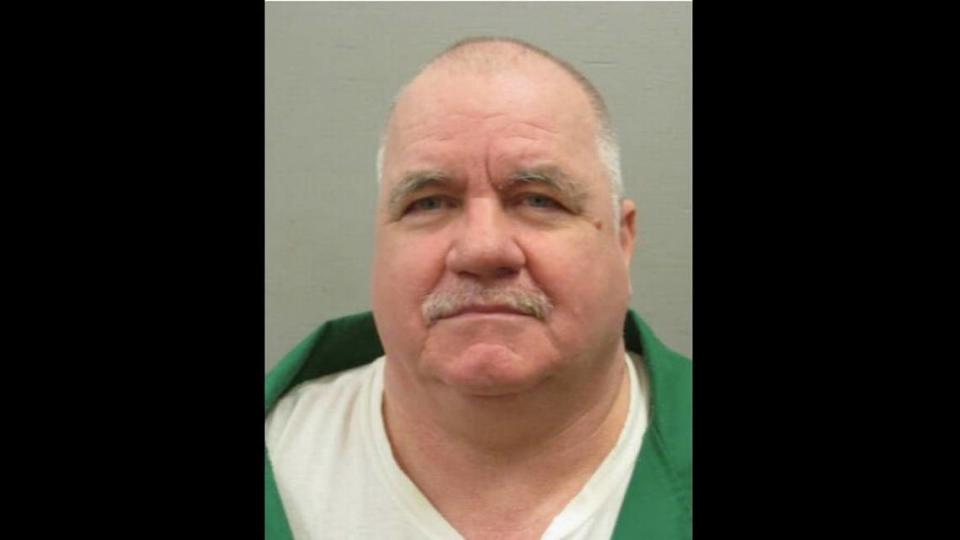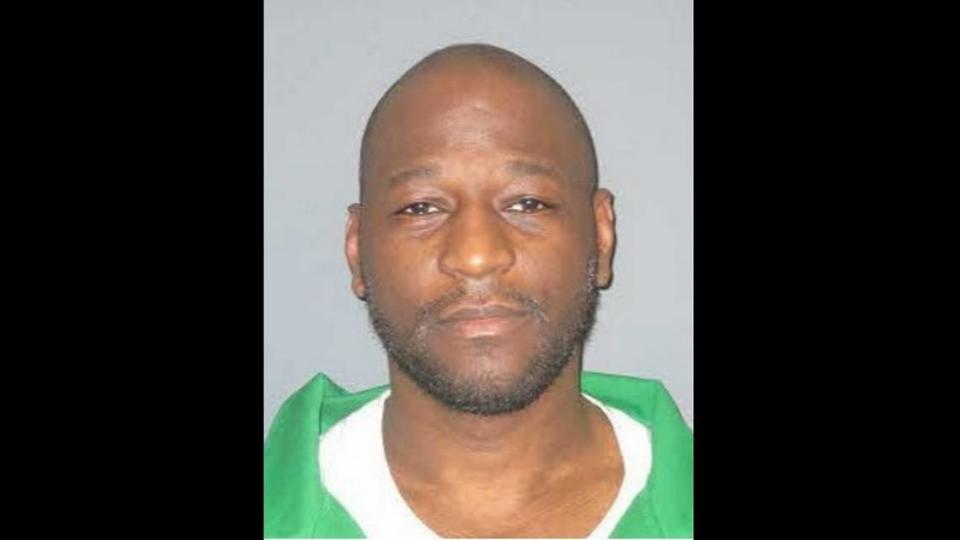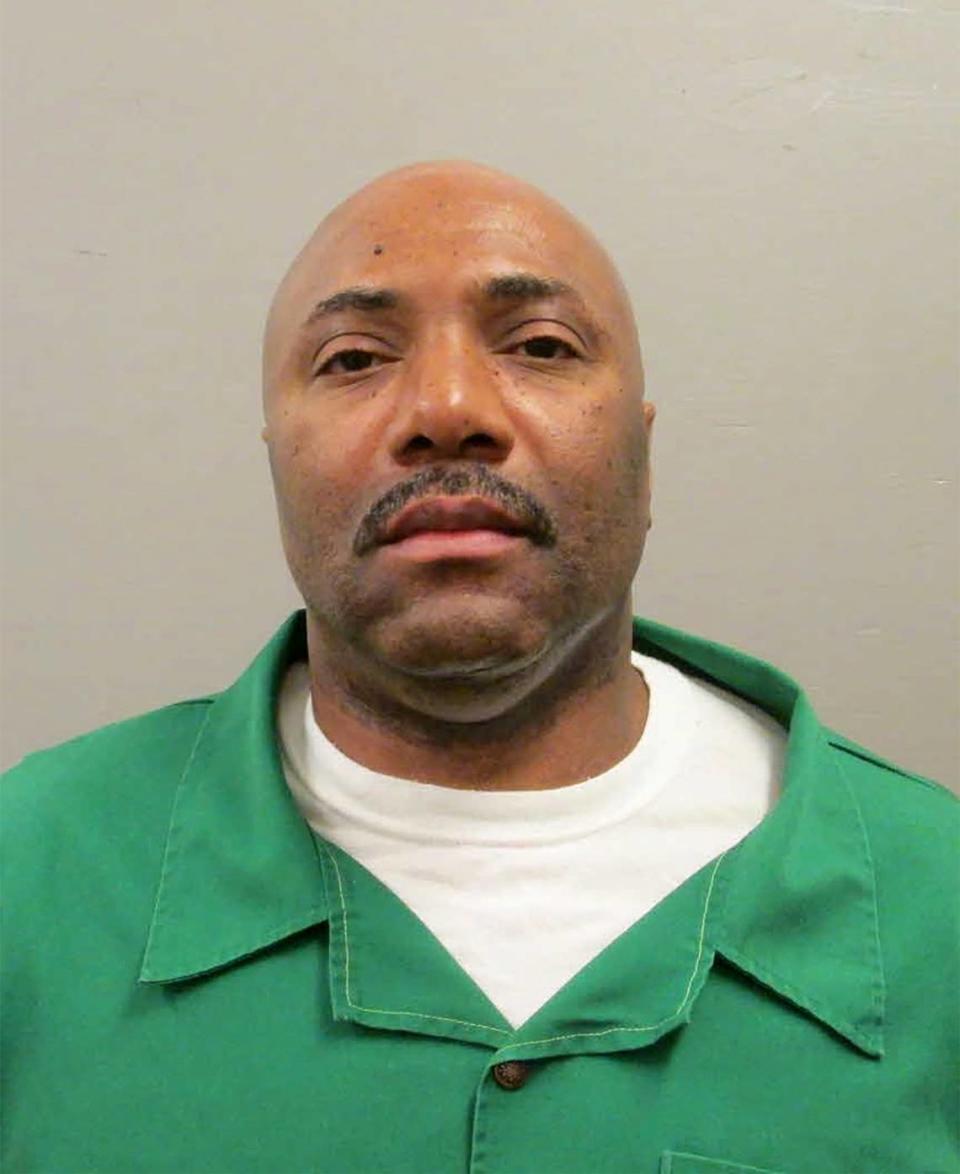SC is expected to carry out its first inmate execution in a decade. Here’s what we know.
South Carolina on Friday is schedule to carry out its first execution in nearly a decade, and its first execution using the electric chair since 2008.
Death row inmate Brad Sigmon, 63, is scheduled to die in the electric chair at 6 p.m. at the Broad River Road Correctional Institution in Columbia, which houses death row inmates and is the center where executions in the state are carried out, according to the state Department of Corrections.
Sigmon, who was sentenced in 2002 for the murder of his ex-girlfriend’s parents, is the first inmate scheduled to die under South Carolina’s new execution law, signed by Gov. Henry McMaster in May.
Under the state’s old execution law, the default method of execution was the lethal injection, meaning unless an inmate specifically selected to die in the electric chair, the state could not force them to do so. This ground South Carolina’s ability to carry out an execution to a halt as drug companies cracked down on how their products were being used and stopped selling to departments of correction looking to carry out executions around the country.
As a result, three inmates — Sigmon, Freddie Owens and Richard Moore — were granted stays of execution because South Carolina simply didn’t have the supplies to carry out an execution via lethal injection, according to Corrections officials.
When lawmakers reconvened in Columbia in January, they set out to formulate a way for the state to resume executions. Ultimately, they changed the state’s execution law to make the default mode of execution the electric chair. However, under the new law, if the firing squad or ethal injection are available — both currently are not — an inmate could choose one of those options.
South Carolina is one of eight states that use the electric chair. The others are Alabama, Arkansas, Florida, Kentucky, Mississippi, Oklahoma and Tennessee.
Who is Brad Sigmon?
Sigmon was convicted of a double murder of David and Gladys Larke, and sentenced to death in Greenville County in 2002.
Tensions between Sigmon and the Larkes were high after his girlfriend ended their relationship. Sigmon and the girlfriend lived together in a trailer next door to her parents, and her parents served Sigmon with eviction papers after the break up, according to court documents.
In 2001, Sigmon killed the parents of his ex-girlfriend with a baseball bat, according to a Spartanburg Herald Journal story written about Sigmon’s arrest. Sigmon also attempted to kidnap his ex-girlfriend, but she managed to escape, though she was shot in the foot.

After the murders, Sigmon fled the state, leading police on an 11-day man hunt across the Southeast. He was located and captured at a campground in Tennessee.
When he was arrested, Sigmon confessed to Tennessee officers and Greenville County detectives, according to court documents. He admitted his guilt again at trial and has not disputed his guilt during any recent hearings over his execution.
Sigmon was convicted on two counts of murder and one count of burglary. During sentencing, the defense presented testimony saying that Sigmon had issues as a child with abandonment and neglect. He had an extensive history of drug use, aggravated by his “recurrent major depressive disorder,” the defense said, according to court documents.
Sigmon was granted a stay of execution on Feb. 4, 2021, due to the shortage in lethal injection drugs. Once the state was able to resume executions, however, the state Supreme Court issued a new date for Sigmon’s execution on May 27.
What do we know about the execution?
When it comes to the execution itself, we know very little. The South Carolina Department of Corrections does not disclose execution policies and procedures, department spokeswoman Chrysti Shain said.
Department staff have been training to perform an execution at least once a month, Shain said. The frequency of tests increases once the court issues the execution notice, which happens about a month before the actual execution.
The team that trains to carry executions out are all volunteers, Shain added.
The equipment is also routinely checked to make sure it is in working order.
Other aspects surrounding the execution itself are set by state law, specifically who is allowed to be in attendance as the inmate is put to death.
The family of the victim is allowed to have up to three witnesses in attendance. A minister and the inmate’s lawyer may also be present, as well as a representative from law enforcement and the solicitor from the county where the offense occurred.
Three media witnesses will also be allowed to attend, one from the Associated Press, one from a print news outlet and one from a television news outlet. For Sigmon’s execution, the Greenville News and WYFF have been selected, though other reporters will be allowed to wait outside of the facility.
Leading up to the execution, Sigmon will be allowed to order a final meal, which the Department of Corrections will either buy or cook, depending on whether the order is specific to an outside restaurant, Shain said. Sigmon will also be allowed to meet with spiritual counsel and his lawyer, if he chooses.
Sigmon will also have the option of requesting a meeting with his family, Shain said. It was not immediately known whether he has done so.
He will also be examined by medical and mental health staff ahead of the execution, Shain said.
Is Sigmon’s execution set in stone?
While Sigmon has exhausted all of his regular appeals, he still has a chance for a last-minute reprieve.
Sigmon has two active cases currently being considered, one in a federal appellate court and one in the state Supreme Court. Both cases received hearings in lower courts last week.
Last Monday, Sigmon’s attorneys appeared in circuit court to argue that South Carolina’s new execution law is unconstitutional. Specifically, the attorneys argued that it was unfair that the law apply retroactively to inmates that are already on death row because, under the new law, the inmates will be forced to die by what is considered by some a more painful method.
They also questioned why the state Department of Corrections isn’t able to offer other legal methods of execution like the lethal injection or firing squad.
“We also know they are in the process of developing the firing squad,” attorney Hannah Freedman said in court. “We also know that lethal inject drugs are available in other states.”
Corrections officials have testified for years that they could not purchase the drugs for a lethal injection because drug companies have refused to sell to them. Other states, however, have been able to purchase the drugs because they have shield laws — which protect the name of drug companies selling the lethal injection drugs from the public. South Carolina lawmakers have been unable to pass a shield law.
As for the firing squad, the Department of Corrections is currently developing procedures to carry out an execution using that method, but the procedures are not yet ready.
Attorneys for the governor and the Department of Corrections argued that inmates were sentenced to death, not a particular method of execution.
“The punishment here has not changed,” Corrections’ attorney Daniel Plyler said. “The punishment … is the death penalty. That’s it. That’s the punishment. And it has not changed.”
A Richland County judge ultimately turned down Sigmon’s attorneys’ request for an injunction, which would have stopped the new law from taking affect.
Last Thursday, Sigmon’s attorneys filed an appeal in that case and requested that the state Supreme Court take it up quickly. No further documents or court dates have been set in that case this week.
Sigmon’s other outstanding case is in a federal appellate court, where his attorneys are arguing that the electric chair may be a violation of the Eighth Amendment, which protects from cruel and unusual punishment.
The attorneys initially appeared in federal court in Florence to argue the case last Wednesday. There, the attorneys acknowledged that the Supreme Court has stood by the use of the electric chair in the past, but said the issue is “ripe to revisit at this point.”
“This is a method of execution that relies on mutilation,” attorney Gerald King said in court last week.
Again, attorneys questioned why Corrections was unable to obtain any drugs to carry out a lethal injection execution, whether it be the drugs required in the three drug cocktail method or the single drug method using phenobarbital.
The attorneys asked for a preliminary injunction to stall Sigmon’s upcoming execution.
Attorneys for the governor and Corrections argued that the Supreme Court’s stance on the electric chair is clear and the inmate’s lawyers were unlikely to succeed on the merits of their argument. Therefore, they said, the injunction should not be granted.
Ultimately, a federal judge denied the injunction.
“Legal precedent and the weight of legal authority are against them,” Judge Robert Bryan Harwell wrote. “The United States Supreme Court has never held that a State’s chosen method of execution qualifies as cruel and unusual.”
Sigmon’s attorneys Monday appealed the case to the 4th Circuit Court of Appeals. On Tuesday, they requested an emergency injunction.
SC’s last executions
South Carolina hasn’t carried out an execution since May 5, 2011, when Jeffrey Motts, 36, was killed by lethal injection. He’d been convicted of killing his cellmate at Perry Correctional Institution in 2005 as he was serving a life sentence for killing two people during a 1995 robbery in Spartanburg County, the Associated Press reported.
South Carolina’s last electric chair execution took place years earlier on June 20, 2008, when James Earl Reed was put to death.
Reed was convicted of killing Joseph and Barbara Lafayette, the parents of his ex-girlfriend, in 1994 in their Charleston home.
Reed, who had an IQ of 77, represented himself at trial. An IQ of less than 70 is considered an intellectual disability.
Reed was convicted in only 30 minutes.
For the sentencing hearing, Reed asked for a lawyer, but a judge refused, and Reed was sentenced to death.
Days before Reed’s execution, the Supreme Court issued an opinion in an unrelated case, ruling that a defendant can be ruled competent to stand trial, but still may be found unable to serve as his own lawyer. Lawyers who were not involved in the case or in contact with Reed questioned whether Reed was competent to represent himself at trial and asked whether he was entitled to a new one because of his low IQ. The effort failed.
Descriptions of Reed’s death in the electric chair are hard to find, but news reports from the time don’t mention any mishaps.
The electric chair is known to sometimes result in botched executions.
According to The Death Penalty Information Center, the United States saw 84 botched electric chair executions from 1890 to 2010. Botched executions could result in officials having to “flip the switch” to electrocute inmates more than once and even inmates catching on fire.
Other upcoming executions

South Carolina is already preparing to carry out another execution.
Death row inmate Freddie Owens, who was convicted of murdering a convenience store clerk during a robbery spree, is scheduled to be executed in the electric chair June 25, a week after Sigmon’s scheduled execution.
Owens was convicted in 1999 for the killing of Irene Grainger Graves, 41, at the Starvin’ Marvin Speedway gas station in Greenville County.
As Owens awaited to hear the penalty for his case, he killed a fellow detainee at the Greenville County Detention Center, Christopher Lee, 28, according to a Spartanburg Herald-Journal story published after his sentencing for the gas station killing. According to the news article, Owens told State Police that he punched Lee repeatedly, stabbed him in the eye with a pen, choked him, stomped on his head and body, burned his eyes with a lighter and stabbed him with a pen up his nose.
Owens, who has exhausted his regular appeals, is also seeking court intervention. He has joined Sigmon on both his federal case and his case filed in state court.

A third inmate, Richard Moore, also received a stay of execution, but the state Supreme Court has not yet rescheduled his execution.
Moore was sentenced to death in the 1999 fatal shooting of James Mahoney, a convenience store clerk in Spartanburg County, S.C.
While Moore has exhausted his regular appeals, Moore has an appeal pending with the state Supreme Court that has yet to be resolved.

